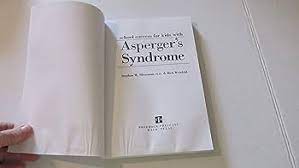Asperger syndrome is a neurological condition that falls within the autism spectrum. Children with this condition exhibit various social, sensory, and behavioral challenges. They may struggle to interact with their peers, be overwhelmed by stimuli, and follow rigid routines. Gifted children with Asperger syndrome possess exceptional talents, but as educators, we must ensure that they thrive academically and socially. Here are some practical tips to help effectively teach gifted children with Asperger syndrome.
1. Understand Their Needs
Before tackling any teaching strategies, you must first familiarize yourself with the needs of children with Asperger syndrome. Conduct thorough research on the subject and consult educational psychologists and other professionals on best practices for teaching gifted children with this condition.
2. Build Trusting Relationships
Students with Asperger syndrome may become anxious when faced with new or unfamiliar situations. Establish a genuine relationship by consistently providing a safe and supportive learning environment. Assure them that their thoughts, feelings, and opinions are valued and respected.
3. Create Structured Learning Environments
Children with Asperger syndrome thrive in structured environments where expectations are clear and routines are established. Develop a daily schedule outlining subjects and times for breaks, ensuring all activities run predictably.
4. Utilize Visual Supports
Gifted children with Asperger syndrome often have trouble organizing information in their heads but excel when provided visual support systems such as charts, calendars, reminder cards, or social stories.
5. Adapt Teaching Strategies
Use differential instruction techniques to cater to individual learning styles and modify your teaching method when necessary. For example, if a student has difficulty understanding abstract concepts or metaphors in literature lessons, provide concrete examples and explanations instead.
6. Encourage Strengths
Identify each child’s unique talents or abilities, then create opportunities for them to further develop these strengths both inside and outside the classroom.
7. Teach Social Skills
Some students with Asperger syndrome struggle with social skills, which may hamper their ability to form meaningful relationships. Provide consistent, specific feedback targeting areas they may need help in and integrate group activities that encourage teamwork and communication.
8. Foster Emotional Regulation
Guide students in recognizing and managing their emotions. Teach relaxation techniques such as deep breathing exercises, mindfulness, or other calming strategies that can be implemented in times of stress or frustration.
9. Partner with Parents
Collaborate with parents to ensure that strategies and resources that work well in the classroom are also being practiced at home, promoting consistency for the child’s learning experience.
10. Encourage Inclusion
Promote an inclusive environment by educating all students about Asperger syndrome, their strengths and differences, and how to interact respectfully and empathetically with classmates who have it.
In conclusion, effectively teaching gifted children with Asperger syndrome requires patience, understanding, and a willingness to adapt to their needs. Utilizing these practical tips can help create an educational atmosphere where they flourish academically and socially.





